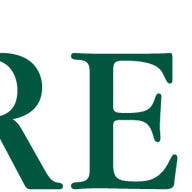Many blockchain use cases need IoT to succeed, and more

special report
Many of the most advanced and successful blockchain projects involve use cases related to supply chain and logistics, ranging from documentation management and goods tracking to trade finance. Having access to a "golden record" of key data is clearly a benefit in its own right -- no more phone calls and email exchanges to reconcile data, everybody knows where the goods are, and so on. But for many use cases, that's not enough.
Any blockchain network that involves the tracking of an asset -- whether it's an expensive piece of equipment or a shipment of fresh strawberries -- needs more data than just the location of the items. Have those strawberries been kept within a prescribed temperature range? Has the equipment got damp at any stage? And even, is this item genuine, and has nobody tampered with it? Without an understanding of the condition of the goods, companies won't be able to leverage the benefits of blockchain networks to full effect. Enter the internet of things (IoT)!
There are also more futuristic applications of the IoT/blockchain combo: Many paint vivid pictures of self-managed (potentially even self-owned) devices that interact autonomously and settle economic transactions between them. When my colleague Paul Miller and I embarked on a research project to discover the state of the art when it comes to IoT and blockchain in combination, we weren't surprised to find that this future hasn't arrived yet. What did surprise us, though, was the comparatively small number of projects that are moving beyond the proof of concept (PoC)/pilot phases for use cases that are achievable today.
Or maybe we shouldn't have been surprised -- operationalizing is hard! Organizations find it difficult enough to grapple with new technologies like blockchain and IoT without adding the complexity of doing all of this at scale and in the sorts of loose federations of partners and competitors where blockchain makes the most sense. And we also found that there are still many projects where the teams have failed to address some of the fundamental questions that need answers before tech development proceeds.
These include:
- What are you actually trying to achieve? Do you need blockchain for that? And do you really need IoT for that? There are still too many vanity projects, where getting into the headlines with the buzzwords "blockchain" and "IoT" seems to be the primary objective.
- Are you clear about what the technology, or technologies, can achieve? Too many projects are looking to blockchain to solve issues that are either business problems or features of market structure, neither of which technology can address.
- How many PoCs do you need? PoCs are a great way to demonstrate the benefits of technology, in particular when it's one that introduces entirely new ways of doing things. But many companies don't know when to stop, either extending project deadlines even though it's obvious it won't go anywhere or embarking upon yet another PoC without clear objectives and review points.
- How will you and your ecosystem partners define processes and governance? And what about security? We found that many teams regard these matters as an afterthought, to be taken care of at a later stage. Big mistake, as projects taking this approach are much more likely to fail.
Download Forrester's complimentary guide to learn how to prepare for the future of IT.
This blog was written by VP, Principal Analyst Martha Bennett, and originally appeared here.